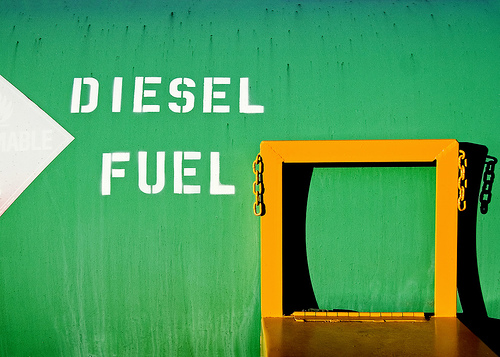Diesel is an optimal fuel that powers the majority of America’s transportation and boating vehicles. Unfortunately, this type of fuel has incomplete combustion, deposits and poor emissions and therefore is more likely to cause more problems over other types of fuels. All of the problems associated with diesel fuels can harmfully affect a vehicle’s performance and life span.
Other difficulties include the minimal sulfur variety, gelling in the winter weather, oxidative breakdown, excessive water buildup in the storage unit, and a toxic invasion of the fuel supply that requires biocide to remove.
Here are the Top Problems Connected to Running your Vehicle on Diesel Fuel.
Poor Cold Weather Performance
For individuals who live in areas that are normally cold and/or snow heavily, diesel fuel will cause a problem to their daily lives. Diesel fuel is made up of molecules from carbon and multifaceted paraffin wax molecules. When cold, the two molecules break down and the fuel transforms into a cloudy structure. The carbon based molecules and paraffin wax combine to perform clumps that slow the fuel flow to the engine of the vehicle. This process will damage the fuel the more it occurs, ultimately stopping fuel usage all together. The colder the weather is, the more the two substances become solids and combine.
To prevent this problem, many vehicle owners purchase a Diesel Cold Flow product (5 gallons around $200) that prevents the two substances from gelling.
Cold weather also has a negative effect on diesel engines. These engines depend on the compression generating heat which is harder to achieve in the winter.
Excessive Water Buildup
In vehicles that have not been in use for a long period of time, vehicle owners will find water buildup located at the bottom of the fuel tank. The weight of water tops the weight of diesel fuel and therefore sinks below the fuel. This problem is more important among boats and other water vehicles.
-The increase of water buildup can cause bacteria, mold, and fungi damaging the health of the fuel system.
-Water caused the fuel to break down faster.
-Water can travel to the hot injector causing the water to swell. This blows the injector apart and
causes the vehicle to stop.
-Tank corrosion is caused by excess water.
– Water in fuel increases the speed of oxidation
A concentrated fuel treatment can help with water buildup.
Injector Deposits
All engines incorporate fuel injectors into their systems. The fuel injector is responsible for transforming the diesel fuel into hot air that ignites the engine. Regularly cleaning fuel injectors are essential to successful engine performance. All engines naturally produce a small amount of coke in the annulus of the injector. Injectors only can handle a certain volume of coke and going over this limit disturbing the process of turning diesel emission into hot air, stopping the engine from properly running.
There are many other problems associated with diesel fuel. To help prevent these complications, it is essential to take proper care of your engine, fuel, and fuel injectors.















